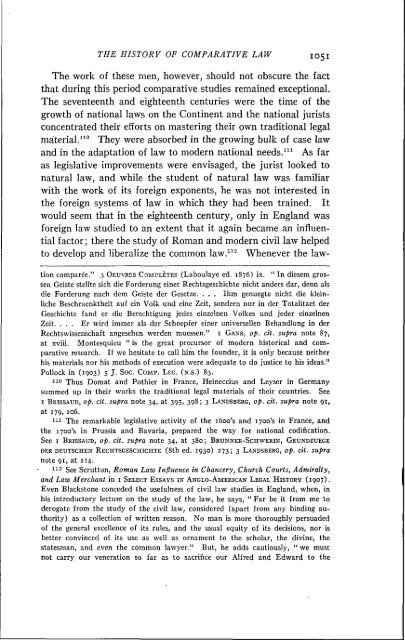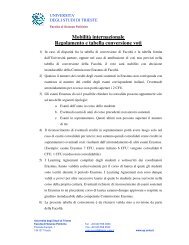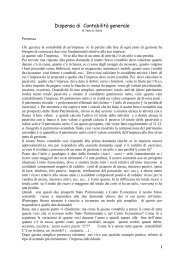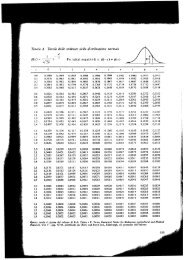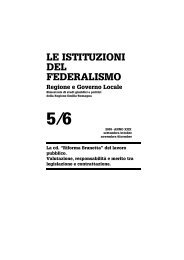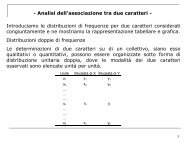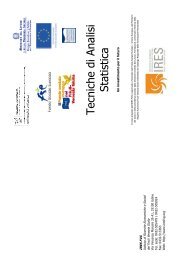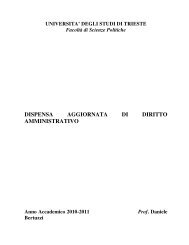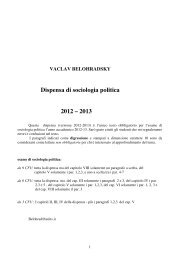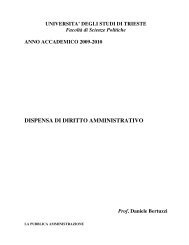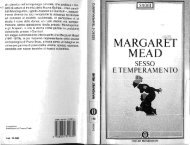THE HISTORY OF COMPARATIVE LAW * ^COMPARATIVE law, as ...
THE HISTORY OF COMPARATIVE LAW * ^COMPARATIVE law, as ...
THE HISTORY OF COMPARATIVE LAW * ^COMPARATIVE law, as ...
You also want an ePaper? Increase the reach of your titles
YUMPU automatically turns print PDFs into web optimized ePapers that Google loves.
<strong>THE</strong> <strong>HISTORY</strong> <strong>OF</strong> <strong>COMPARATIVE</strong> <strong>LAW</strong> 1051<br />
The work of these men, however, should not obscure the fact<br />
that during this period comparative studies remained exceptional.<br />
The seventeenth and eighteenth centuries were the time of the<br />
growth of national <strong>law</strong>s on the Continent and the national jurists<br />
concentrated their efforts on m<strong>as</strong>tering their own traditional legal<br />
ma^terial."" They were absorbed in the growing bulk of c<strong>as</strong>e <strong>law</strong><br />
and in the adaptation of <strong>law</strong> to modern national needs.^^^ As far<br />
<strong>as</strong> legislative improvements were envisaged, the jurist looked to<br />
natural <strong>law</strong>, and while the student of natural <strong>law</strong> w<strong>as</strong> familiar<br />
with the work of its foreign exponents, he w<strong>as</strong> not interested in<br />
the foreign systems of <strong>law</strong> in which they had been trained. It<br />
would seem that in the eighteenth century, only in England w<strong>as</strong><br />
foreign <strong>law</strong> studied to an extent that it again became an influential<br />
factor; there the study of Roman and modern civil <strong>law</strong> helped<br />
to develop and liberalize the common <strong>law</strong>.^^- Whenever the <strong>law</strong>-<br />
tion comparee." 3 OEUVRES COMPLETES (Laboulaye ed. 1876) ix. " In diesem grossen<br />
Geiste stellte sich die Forderung einer Rechtsgeschichte nicht anders dar, denn als<br />
die Forderung nach dem Geiste der Gesetze. . . . Ihm genuegte nicht die kleinliche<br />
Beschraenktheit auf ein Volk und eine Zeit, sondern nur in der Totalitaet der<br />
Geschichte fand er die Berechtigung jedes einzelnen Volkes und jeder einzelnen<br />
Zeit. ... Er wird immer als der Schoepfer einer universellen Behandlung in der<br />
Rechtswissenschaft angesehen werden muessen." i GANS, op. cit. supra note 87,<br />
at xviii. Montesquieu " is the great precursor of modern historical and comparative<br />
research. If we hesitate to call him the founder, it is only because neither<br />
his materials nor his methods of execution were adequate to do justice to his ide<strong>as</strong>."<br />
Pollock in (1903) s J. Soc. COMP. LEG. (N.S.) 83.<br />
11° Thus Domat and Pothier in France, Heineccius and Leyser in Germany<br />
summed up in their works the traditional legal materials of their countries. See<br />
I BRISSAUD, op. cit. supra note 34, at 395, 398; 3 LANDSBERG, op. cit. supra note 91,<br />
at 179, 2o5.<br />
m The remarkable legislative activity of the i6oo's and 1700's in France, and<br />
the 1700's in Prussia and Bavaria, prepared the way for national codification.<br />
See I BRISSAUD, op. cit. supra note 34, at 380; BRUNNER-SCHWERDT, GRUNDZUEGE<br />
DER DEUTSCHEN RECHTSGESCHICHTE (8th ed. 1930) 273; 3 LANDSBERG, op. cit. SUpra<br />
note 91, at 214.<br />
112 See Scrutton, Roman Law Influence in Chancery, Church Courts, Admiralty,<br />
and Law Merchant in i SELECT ESSAYS IN ANGLO-AMERICAN LEGAL <strong>HISTORY</strong> (1907).<br />
Even Blackstone conceded the usefulness of civil <strong>law</strong> studies in England, when, in<br />
his introductory lecture on the study of the <strong>law</strong>, he says, " Far be it from me to<br />
derogate from the study of the civil <strong>law</strong>, considered (apart from any binding authority)<br />
<strong>as</strong> a collection of written re<strong>as</strong>on. No man is more thoroughly persuaded<br />
of the general excellence of its rules, and the usual equity of its decisions, nor is<br />
better convinced of its use <strong>as</strong> well <strong>as</strong> ornament to the scholar, the divine, the<br />
statesman, and even the common <strong>law</strong>yer." But, he adds cautiously, " we must<br />
not carry our veneration so far <strong>as</strong> to sacrifice our Alfred and Edward to the


